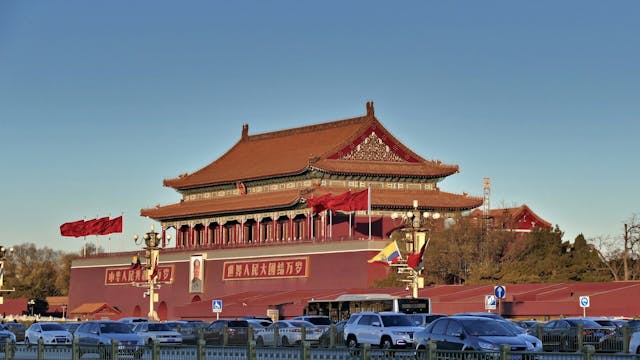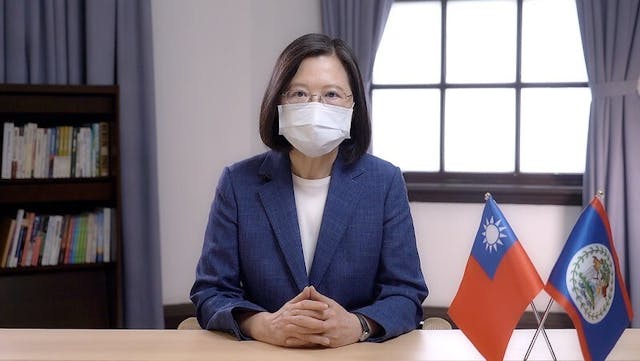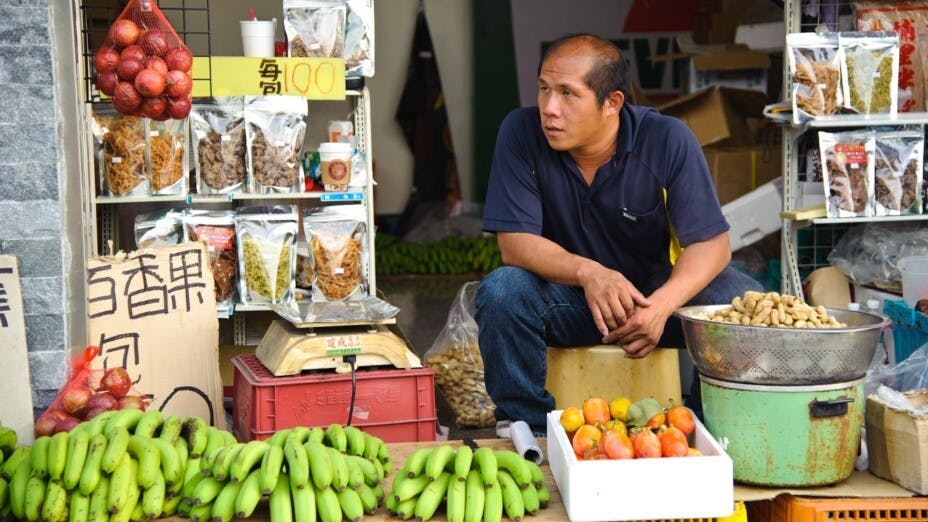中國大陸9月16日申請加入《跨太平洋夥伴關係全面進步協定》(Comprehensive and Progressive Agreement for Trans-Pacific Partnership, CPTPP),台灣也在9月22日提出申請,這不僅表明兩岸之間的激烈競爭,還有令兩岸先後提出申請的國際和國內複雜政治形勢。
CPTPP是一個由澳洲、日本、加拿大、紐西蘭、越南、馬來西亞、文萊、新加坡、墨西哥、秘魯和智利等11個國家組成的自由貿易協議。上述國家於2018年3月批准有關協定後,12月30日正式生效。 除少數農產品外,成員國之間幾乎所有工業產品均免稅。CPTPP將11個國家總值13.5 萬億美元的經濟連結起來,佔全球GDP 13.4% 。CPTPP若允許中國加入,將大大強化這個自由貿易協定。
大陸強烈反對台灣申請加入
中國大陸對台灣申請加入CPTPP反應強烈而負面。9月23日,中國外交部發言人趙立堅表示,「堅決反對任何國家與台灣進行官方往來,堅決反對台灣地區加入任何官方性質的協議和組織。」他補充說,世界上只有一個中國,一個中國原則是公認的國際關係準則和國際社會普遍共識。
9月23日,國台辦發言人朱鳳蓮強調,中國台灣地區參與區域經濟合作,必須以一個中國原則為前提。她補充說,國台辦反對民進黨當局以經貿為由拓展所謂國際空間、進行謀獨活動。她希望有關國家妥善處理涉台問題,不為「台獨行徑」提供任何便利和平台。
台灣以「台灣、澎湖、金門、馬祖個別關稅領域」名義,向紐西蘭外交貿易部申請加入CPTPP。紐西蘭是CPTPP的保存方,負責處理該協議的各種行政任務,包括受理其他國家的加入請求。
廈門大學台灣研究所副所長張文生表示,台灣當局若想加入CPTPP等國際組織,必須符合一個中國原則,必須要得到中國政府的同意。他補充說,在大陸加入CPTPP之前,台灣當局沒資格加入,在大陸加入CPTPP之後,台灣當局能否加入也必須由中方審核。

台灣加入或影響農業
儘管台灣渴望加入CPTPP,預計此舉可為台灣增加2%的經濟長率,但對農民和汽車製造商的影響可能是巨大的。 台灣「國家發展委員會」主任委員龔明鑫9月22日表示,如果英國、南韓、泰國、印尼和菲律賓等國陸續加入CPTPP,台灣不能加入,將使得整體經濟受到「負0.5、0.6%」的衝擊。
台灣對進口日本農產品,特別是對福島農產品實施貿易限制。台灣申請加入CPTPP,意味着台灣可能不得不取消所有這些限制,以遊說日本支持其加入CPTPP。 然而,如果台灣取消對日本的進口限制,一些台灣農民和民眾可能會反對。
台灣還對玉米、香蕉、梨、蘑菇等20種農產品採取關稅保護政策,保護範圍佔農業總產量的46%。如果台灣成功加入CPTPP,台灣不僅要取消對各種農產品的關稅,而且農產品進口也會顯著增加。有觀察人士認為,CPTPP對台灣農業的影響將是巨大的。
民進黨冀爭取更多國際空間
台灣並未申請加入中國大陸作為15個成員國之一的區域全面經濟夥伴關係協定(RCEP),而台灣申請加入CPTPP顯然有政治方面的考量。首先,台灣繞過大陸試圖加入龐大的經濟協定,是爭取權力和「國際空間」的掙扎;其次,執政的民進黨似乎向其島內對手國民黨作出政治姿態,國民黨內的中間派朱立倫和支持統一的張亞中之間,因黨主席選舉競爭激烈(編按:朱立倫最終獲得85164票,以45.78%的得票率當選)。
民進黨發出的訊息是,它努力獲得更多的「國際空間」,而不是尋求與大陸更緊密的政治經濟關係。再者,民進黨尋求日本支持加入CPTPP。9月25日,日本經濟再生擔當大臣西村康稔在記者會上表示:「我們認為台灣是一個非常重要的夥伴,我們共享自由、民主、人權和法治等基本價值。」
在民進黨統治下,台灣當局一直利用與日本等西方民主國家的意識形態親緣關係來處理對外關係,贏得更多國際朋友。因此,台灣申請加入CPTPP是一項政治舉措,儘管加入CPTPP在經濟價值上會給國內農民帶來農業損失。
的確,台灣企圖擴大其「國際空間」的問題癥結在於,民進黨當局至今未承認1992年兩岸達成的「九二共識」。

中國加入CPTPP的障礙
批評者指出,中國大陸難以滿足CPTPP對成員的要求,包括其非市場化的行為和國有企業的經營。不過,也有觀察人士認為,通過申請加入CPTPP,中國決心改革其國內經濟行為;通過持續改革國企、加強知識產權保護等多種形式促進經濟自由化。換言之,中國申請CPTPP是加速和深化其國內和對外經濟自由化的一種手段。按照越南的做法,中國遲早會批准國際勞工組織的公約。事實上,越南已表示有意與中國分享加入CPTPP的經驗。
另一方面,9月24日中國釋放兩名被扣的加拿大公民康明凱和邁克爾,中加關係剛剛取得突破,華為副董事長孟晚舟承認曾就華為在伊朗業務誤導銀行的「不當行為」後,同時從加拿大獲釋。 因此,加拿大不太可能成為抵制中國加入CPTPP的關鍵國家。相反,澳洲和日本可能是兩個較傾向抵制中國申請的國家。澳洲表示,除非北京取消對澳洲產品的報復性關稅,否則它不會考慮中國申請CPTPP;日本對台灣的公開支持和對中國大陸在台灣附近軍事行動的軍事警惕,可能會損害中日關係,成為中國加入CPTPP的又一障礙。
作為日本和台灣的盟友,美國正在抵制中國加入CPTPP。儘管在特朗普任總統時,美國已在2017年1月退出了 CPTPP,但美國國務院發言人普賴斯9月24日表示,台灣是世界貿易組織「負責任的成員」,「信奉民主價值觀,這大概也會被CPTPP考慮」。
綜上所述,中國申請加入CPTPP遇到政治阻力;台北尋求加入CPTPP,但不接受「九二共識」。然而,加入CPTPP有隱藏的經濟成本,因為台灣農業可能會受嚴重影響。儘管如此,台灣當局仍充滿政治算計,尤其是當執政當局希望在島內支持者和反對者面前擴大其所謂的「國際空間」的時候。不過,中國申請加入CPTPP仍不容低估,因為北京渴望深化和促進國內經濟自由化。儘管少數國家可能對支持中國加入CPTPP的申請猶豫不決,但未來幾年北京將如何對CPTPP中的所有11個國家實施「統戰」外交政策,仍有待觀察。無論如何,中國申請加入CPTPP,是對外擁抱經濟全球化、對內持續經濟自由化的重要訊號。
The Politics of CPTPP Applications: Beijing Diplomacy and Taipei Calculations
The moves by the People’s Republic of China (PRC) to apply for membership of the Comprehensive and Progressive Agreement for Trans-Pacific Partnership (CPTPP) on September 16 and that by Taiwan to follow suit on September 22 illustrated not only the intense rivalries between the two sides but also the complex domestic and international politics shaping their applications.
The CPTPP is a free trade organization composed of eleven countries, including Australia, Japan, Canada, New Zealand, Vietnam, Malaysia, Brunei, Singapore, Mexico, Peru and Chile. It came into operation on December 30, 2018, after the countries concerned had ratified the agreement in March in the same year. Except for a few agricultural products, almost all other industrial products are exempted from tax in the member states. The CPTPP combines all the economies of the eleven states with US$13.5 trillion or 13.4 percent of the global gross domestic product.
If China were allowed to join the CPTPP, the trade bloc would become much stronger than the present.
China responded to Taiwan’s application for the CPTPP membership strongly and negatively. On September 23, the PRC Foreign Ministry’s spokesman Zhao Lijun said that “we resolutely oppose any state to have official interaction with Taiwan and we resolutely oppose the Taiwan district to join any official agreement and organization” (Ta Kung Pao, September 24, 2021).” Zhao added that there is only one China in the world, that the one-China principle is an internationally recognized principle, and that this principle is the common consensus of the international society.
On September 23, the PRC State Council’s Taiwan Affairs Office spokeswoman, Zhu Fenglian, emphasized that China’s Taiwan district must use the one-China principle to participate in regional economic cooperation. She added China opposes the so-called “international space” as used by the Democratic Progressive Party (DPP) as a means of expanding its trade and commercial relations and conducting “independence” activity (Ta Kung Pao, September 24, 2021). She appealed to other countries in the world to manage the Taiwan question properly and should not provide any convenience and platform for Taiwan’s splittist activities.
Taiwan used the name of “the separate custom territory of Taiwan, Penghu and Kinmen Mazu” and sent its accession form to New Zealand’s Ministry of Foreign Affairs and Trade. New Zealand is a depository state for the CPTPP and responsible for transferring all the applications for membership to all other member states.
According to Zhang Wensheng, a deputy dean of the Taiwan research institute at Xiamen University, the Taiwan authorities must conform to the one-China principle and secure the consent and support of the PRC government if it wishes to join any international organization such as the CPTPP. Zhang added that the Taiwan authorities are not qualified to join the CPTPP without firstly having China to participate in the trade organization. After China were admitted to the CPTPP, Beijing would have to scrutinize whether the Taiwan authorities would be allowed to apply and join the CPTPP.
Although Taiwan is eager to enter the CPTPP, which would be expected to add 2 percent to Taiwan’s growth rate, the impact on farmers and car manufacturers would likely be tremendous. The National Development Council minister, Kung Ming-hsin, said on September 22 that if countries such as UK, South Korea, Thailand, Indonesia and the Philippines can join the trade bloc but if Taiwan could not do so, the Taiwan economy would witness a drop of its GDP by 0.5 to 0.6.
Taiwan has imposed trade restrictions on the import of Japanese agricultural products, especially those from Fukushima. Its move to apply for CPTPP membership means that Taiwan may have to remove all these restrictions for the sake of lobbying for Japan’s support for its entry into CPTPP. Yet, if Taiwan removes such import restriction from Japan, some local farmers and Taiwanese would likely oppose to such a move.
Taiwan has also adopted tariff protection policy toward 20 items of agricultural products, such as corns, bananas, pears and mushrooms – a protection that amount to 46 percent of the total agricultural production. If Taiwan were successful in joining the CPTPP, Taiwan would not only have to eliminate its tariffs on various agricultural products but also witness a prominent increase in agricultural imports. Some observers believe that the CPTPP impacts on Taiwan’s agricultural sector would be tremendous.
Taiwan did not apply to join the Regional Comprehensive Economic Partnership (RCEP) in which China is one of the 15 members, but its application for CPTPP membership clearly has political considerations. First, it bypasses China to try joining the huge economic bloc – a struggle for power and “international space.” Second, the ruling DPP appears to make a political gesture to its domestic opponent, the Kuomintang or KMT in which the election of the party chair position was hotly contested between moderate Eric Chu and pro-reunification Chang Ya-chong. The DPP put forward a message that it strives to acquire more “international space” rather than seeking any closer politico-economic relationship with the mainland. Third, the DPP seeks to court the support of Japan to enter the CPTPP. On September 25, the Japanese Minister for Economic and Fiscal Policy, Yasutoshi Nishimura, remarked in a news conference that “we consider Taiwan a very important partner with which we share fundamental values such as freedom, democracy, basic human rights and rule of law.”
Under the DPP rule, the Taiwan authorities have been utilizing the ideological affinity with Western-style democracies, like Japan, to conduct its external relations and to win more international friends. As such, Taiwan’s application for CPTPP membership is a political move, even though the economic value of joining CPTPP would incur agricultural losses to the domestic farmers.
Indeed, the crux of the problem of Taiwan’s attempt at augmenting its “international space” is that the DPP authorities still do not recognize the 1992 consensus reached by the mainland and Taiwan sides.
Critics of the PRC have pointed to its difficulties of meeting the CPTPP’s criteria of membership, including its non-market practices and operation of state-owned enterprises. Nevertheless, some observers believe that, by applying to enter the CPTPP, China is determined to reform its domestic economic practices, pushing forward economic liberalization by various means, such as the continuous reform of state-owned enterprises and the consolidation of intellectual property protection. In other words, the PRC’s application for CPTPP is a means of accelerating and deepening its internal and external economic liberalization. China would likely ratify the International Labor Organization conventions sooner or later, following Vietnam’s practices. In fact, Vietnam has expressed its intention of sharing its experiences with China in joining the CPTPP.
On the other hand, Sino-Canadian relations have just made a breakthrough by the Chinese release of Michael Kovrig and Michael Spavor on September 24, when Huawei executive Sabrina Meng was simultaneously freed from Canada after she admitted her wrongdoing in a fraud case in the US. As such, Canada would not likely be a key country resisting China’s entry into the CPTPP. Rather, Australia and Japan may be two countries relatively resistant to the PRC’s application. Australia has expressed its view that it would not be willing to consider the PRC’s application of CPTPP unless Beijing removes its retaliatory tariffs on Australia’s products. Japan’s open support of Taiwan and its military vigilance of the PRC’s military moves near Taiwan may sour the Sino-Japanese relations, posing as another possible obstacle to China’s entry into the CPTPP.
The US, the ally of Japan and Taiwan, is resisting the PRC’s entry into the CPTPP. Although the US under Donald Trump administration withdrew from the CPTPP in January 2017, its State Department spokesman Ned Price said on September 24 that Taiwan had shown itself to be a “responsible member” of the World Trade Organization, and that “Taiwan’s strong embrace of democratic values would factor in the CPTPP’s parties’ evaluation of Taiwan as a potential candidate for accession.”
In conclusion, China’s application of entry into the CPTPP has met political resistance. Without accepting the 1992 consensus, Taipei has sought to enter the CPTPP; nevertheless, the economic costs of entering the CPTPP are hidden as Taiwan’s agricultural sector would likely be deeply affected. Still, Taiwan authorities are imbued with political calculations, especially as the ruling regime wants to augment its so-called “international space” in front of its domestic supporters and opponents. Yet, the PRC’s application for entry into the CPTPP cannot be underestimated, for Beijing is keen to deepen and accelerate its domestic economic liberalization. Although a few countries may be hesitant to support China’s application for entering the CPTPP, it remains to be seen how Beijing will conduct its united front foreign policy toward all the eleven countries in the CPTPP in the coming years. After all, the application of joining the CPTPP is an important signal of China’s determination to embrace economic globalization externally and continuous economic liberalization internally.
原刊於澳門新聞通訊社(MNA)網站,本社獲作者授權轉載。



































